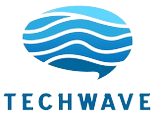In today’s data-driven digital landscape, businesses across industries are constantly seeking efficient ways to extract valuable information from websites. Web scraping has emerged as a critical tool for competitive intelligence, market research, price monitoring, and lead generation. However, traditional scraping methods often face significant challenges including IP blocks, CAPTCHAs, and complex website structures. This is where Scraper API solutions come into play, offering sophisticated infrastructure that simplifies the entire data extraction process.
Understanding Scraper API Technology
A Scraper API represents a comprehensive web scraping service that handles the technical complexities of data extraction through automated systems. Unlike traditional scraping tools that require extensive setup and maintenance, these APIs provide ready-to-use endpoints that can seamlessly integrate with existing applications and workflows.
The fundamental architecture of a Scraper API includes several critical components: proxy rotation systems, browser automation capabilities, anti-detection mechanisms, and scalable infrastructure. These elements work together to ensure reliable data extraction while maintaining anonymity and avoiding common blocking techniques employed by target websites.
Core Features and Capabilities
Modern Scraper API solutions offer an impressive array of features designed to address various scraping challenges. Proxy management stands as one of the most crucial aspects, with services typically providing access to millions of IP addresses across different geographic locations. This extensive proxy network ensures that scraping requests appear to originate from diverse sources, significantly reducing the likelihood of detection and blocking.
Browser automation capabilities enable the handling of dynamic content generated through JavaScript, making it possible to scrape modern single-page applications and interactive websites. Advanced APIs can simulate real user behavior, including mouse movements, scrolling patterns, and form interactions, creating a more authentic browsing experience that bypasses sophisticated detection systems.
Implementation Strategies and Best Practices
Successful implementation of Scraper API solutions requires careful planning and strategic approach. Organizations should begin by clearly defining their data extraction objectives, identifying target websites, and understanding the specific challenges they might encounter. This preliminary analysis helps in selecting the most appropriate API service and configuration options.
When integrating a Scraper API into existing systems, developers should consider factors such as rate limiting, error handling, and data processing workflows. Most professional APIs provide comprehensive documentation and SDKs for popular programming languages, making integration relatively straightforward even for teams with limited scraping experience.
Handling Complex Scenarios
Real-world web scraping often involves navigating complex scenarios such as authentication systems, multi-step forms, and dynamically loaded content. Advanced Scraper APIs address these challenges through features like session management, cookie handling, and customizable request headers. Some services even offer specialized endpoints for common use cases such as e-commerce product scraping or social media data extraction.
For websites that implement sophisticated anti-bot measures, premium api scraper services provide enhanced capabilities including residential proxy networks, browser fingerprint randomization, and machine learning-based detection avoidance. These advanced features ensure consistent data extraction even from heavily protected websites.
Business Applications and Use Cases
The versatility of Scraper API technology makes it valuable across numerous business applications. E-commerce companies leverage these tools for competitive price monitoring, allowing them to track competitor pricing strategies and adjust their own pricing dynamically. Market research firms utilize web scraping APIs to gather consumer sentiment data from review sites, social media platforms, and forums.
Lead generation represents another significant application area, where businesses extract contact information and company details from professional networks, business directories, and industry-specific websites. Real estate companies use scraping APIs to monitor property listings, track market trends, and identify investment opportunities across multiple platforms simultaneously.
Industry-Specific Solutions
Different industries have unique data extraction requirements that specialized Scraper APIs can address. Financial services companies need real-time market data, news sentiment analysis, and regulatory information monitoring. Travel and hospitality businesses require price comparison data, availability tracking, and customer review aggregation from multiple booking platforms.
Healthcare organizations benefit from research paper extraction, clinical trial monitoring, and pharmaceutical pricing data collection. These industry-specific applications demonstrate the flexibility and adaptability of modern Scraper API solutions in meeting diverse business needs.
Technical Considerations and Performance Optimization
When evaluating Scraper API services, technical performance metrics play a crucial role in decision-making. Response time, success rates, and concurrent request handling capabilities directly impact the efficiency of data extraction operations. Premium services typically offer guaranteed uptime, fast response times, and robust infrastructure that can handle high-volume scraping requirements.
Scalability considerations become particularly important for growing businesses or seasonal operations that experience fluctuating data extraction needs. Cloud-based Scraper APIs provide automatic scaling capabilities, allowing organizations to increase or decrease their scraping capacity based on current requirements without infrastructure investments.
Data Quality and Accuracy
The value of extracted data depends heavily on its quality and accuracy. Professional Scraper API services implement data validation mechanisms, duplicate detection, and format standardization to ensure consistent output quality. Some advanced platforms offer data enrichment features that enhance raw extracted data with additional context and structured formatting.
Error handling and retry mechanisms are essential for maintaining data completeness, especially when dealing with unreliable target websites or network connectivity issues. Robust APIs provide detailed error reporting, automatic retry logic, and fallback strategies to maximize data extraction success rates.
Compliance and Ethical Considerations
Responsible web scraping requires careful attention to legal and ethical considerations. Reputable Scraper API providers emphasize compliance with robots.txt files, respect for website terms of service, and adherence to data protection regulations such as GDPR and CCPA. Organizations should establish clear data governance policies and ensure their scraping activities align with applicable legal frameworks.
Rate limiting and respectful scraping practices help maintain positive relationships with target websites while avoiding potential legal complications. Many professional APIs implement intelligent rate limiting that automatically adjusts request frequency based on website response patterns and server load indicators.
Future Trends and Innovations
The Scraper API landscape continues evolving with emerging technologies and changing web development practices. Artificial intelligence and machine learning integration are becoming increasingly common, enabling more sophisticated content recognition, automatic schema detection, and adaptive scraping strategies that can handle website changes without manual intervention.
Browser automation technology is advancing toward more realistic user simulation, incorporating behavioral patterns, device fingerprinting, and advanced anti-detection techniques. These innovations ensure that Scraper APIs remain effective even as websites implement more sophisticated protection mechanisms.
Integration with Modern Data Stacks
Contemporary Scraper APIs are designed to integrate seamlessly with modern data infrastructure including cloud data warehouses, analytics platforms, and business intelligence tools. Real-time data streaming capabilities enable immediate processing and analysis of extracted information, supporting time-sensitive business decisions and automated workflows.
The convergence of web scraping with other data collection methods such as APIs, databases, and IoT sensors creates comprehensive data ecosystems that provide holistic business insights. This integration trend positions Scraper APIs as essential components of modern data-driven organizations.
Conclusion
Scraper API technology represents a mature and sophisticated solution for modern web data extraction challenges. By providing robust infrastructure, advanced anti-detection capabilities, and scalable performance, these services enable businesses to focus on data analysis and decision-making rather than technical implementation details.
The continued evolution of web scraping technology, combined with growing business demand for data-driven insights, ensures that Scraper APIs will remain essential tools for competitive advantage. Organizations that invest in professional scraping solutions position themselves to capitalize on the vast amounts of valuable information available across the web, driving innovation and growth in an increasingly data-centric business environment.

